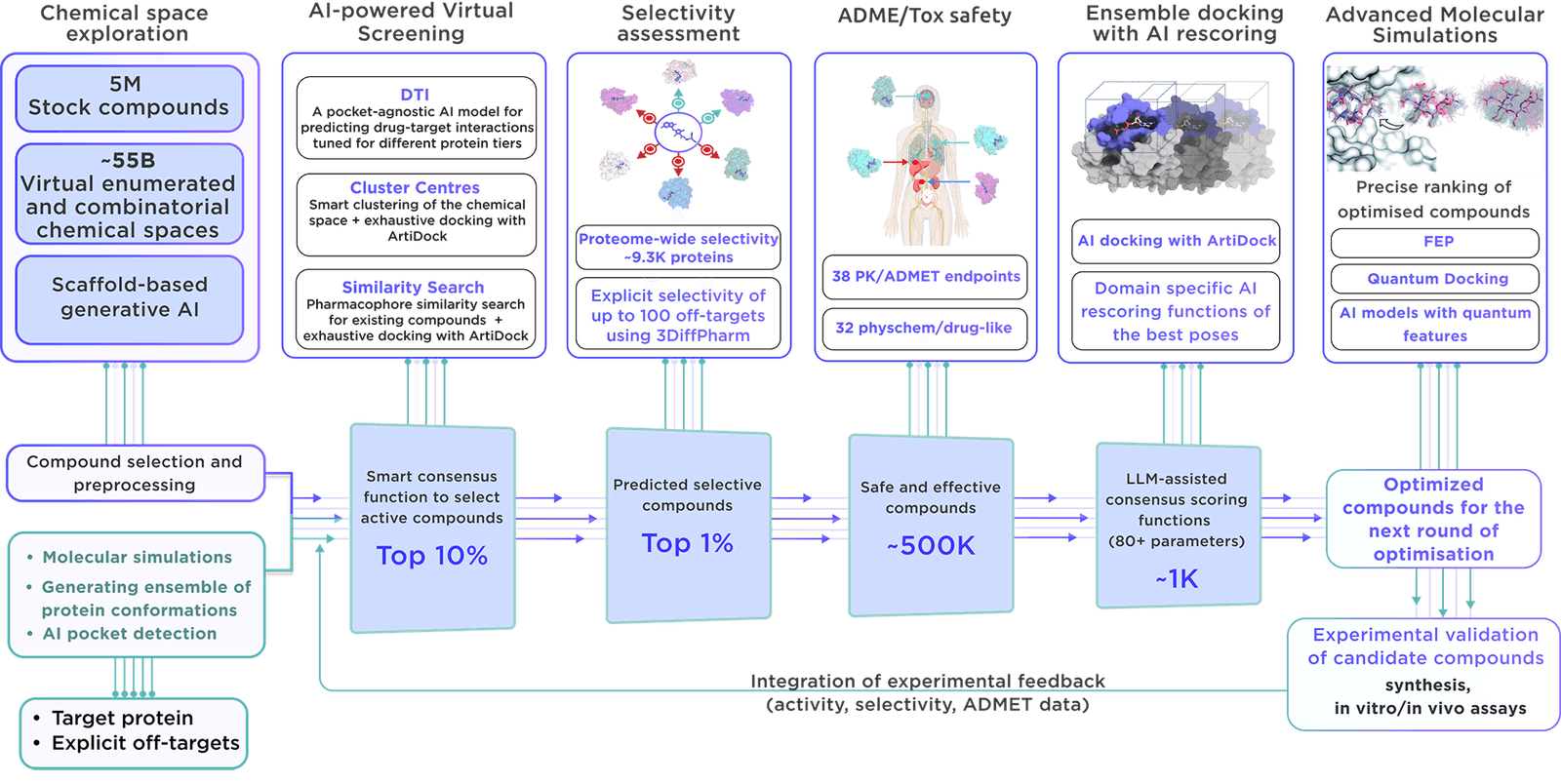Focused On-demand Libraries - Receptor.AI Collaboration
Explore the Potential with AI-Driven Innovation
The specialised, focused library is developed on demand with the most recent virtual screening and parameter assessment technology, guided by the Receptor.AI drug discovery platform. This approach exceeds the capabilities of traditional methods and offers compounds with higher activity, selectivity, and safety.
From a virtual chemical space containing more than 60 billion molecules, we precisely choose certain compounds. Reaxense aids in their synthesis and provision.
The library includes a list of the most promising modulators annotated with 38 ADME-Tox and 32 physicochemical and drug-likeness parameters. Also, each compound is presented with its optimal docking poses, affinity scores, and activity scores, providing a comprehensive overview.
We utilise our cutting-edge, exclusive workflow to develop focused libraries for enzymes.
This approach involves comprehensive molecular simulations of the catalytic and allosteric binding pockets and ensemble virtual screening that accounts for their conformational flexibility. In the case of designing modulators, the structural adjustments caused by reaction intermediates are considered to improve activity and selectivity.
Our library distinguishes itself through several key aspects:
- The Receptor.AI platform integrates all available data about the target protein, including past experiments, literature data, known ligands, structural information and more. This consolidated approach maximises the probability of prioritising highly relevant compounds.
- The platform uses sophisticated molecular simulations to identify possible binding sites so that the compounds in the focused library are suitable for discovering allosteric inhibitors and the binders for cryptic pockets.
- The platform integrates over 50 highly customisable AI models, which are thoroughly tested and validated on a multitude of commercial drug discovery programs and research projects. It is designed to be efficient, reliable and accurate. All this power is utilised when producing the focused libraries.
- In addition to producing the focused libraries, Receptor.AI provides services and end-to-end solutions at every stage of preclinical drug discovery. The pricing model is success-based, which reduces your risks and leverages the mutual benefits of the project's success.
Receptor.AI
P20155
UPID:
ISK2_HUMAN
ALTERNATIVE NAMES:
Acrosin-trypsin inhibitor; Epididymis tissue protein Li 172; HUSI-II
ALTERNATIVE UPACC:
P20155; Q6FGH2

